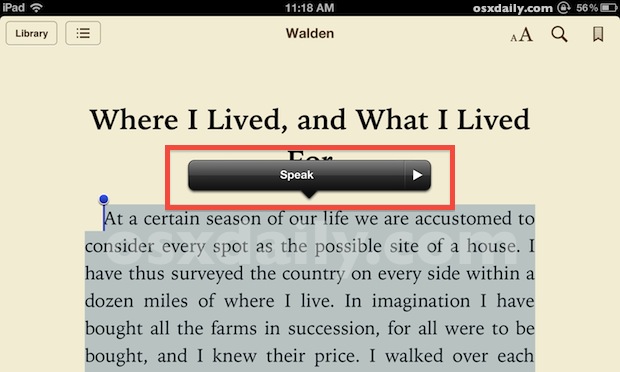How Text-to-Speech Software Facilitates Learning
 InclusiveDocs
InclusiveDocs
In a nutshell, Text-to-Speech software takes written text and transforms it into speech. This technology offers several benefits to consumers, businesses, publishers, personal users and educational, and social institutions. This next-generation communications technology can expand learning and financial opportunities in many ways.
Digital publishers can offer their clients an easy way to access information and leisure. After a long day at work, having a way to relax and listen to the latest news, gossip, and trends without having to read a word is very appealing and gives digital publishers another edge over print.
For educators, the sky is the limit, and the ability to teach languages using text-to-speech is very exciting. An essential element of learning a new language is to hear the sounds, words and sentence flow of that language. Text-to-speech allows one to see how a word is written in a different language and simultaneously hear how that word is pronounced. Add to this the freedom to learn at will, without being bound to class times or tutor schedules is a big plus. Text-to-speech software can be applied to many online course materials and print publications.
Text-to-speech technology enables non-traditional learners and students with learning disabilities such as dyslexia, to excel. TTS eliminates the stress of having to rely solely on visual cues to absorb information. On the same theme, TTS is beneficial for people who have difficulty pronouncing words. Speed and volume can be adjusted to meet the needs of the user. People with physical disabilities can get great benefits from TTS technology too, enabling someone who is mute to communicate. Because TTS can be used on many devices it is accessible at all times of the day and in most situations.
Text-to-speech can also be used to help people with a variety of physical disabilities.
Perhaps the most recognized and famous person to use TTS is Stephen Hawking, who is an English theoretical physicist, cosmologist and author. Dr. Hawking has Amyotrophic Lateral Sclerosis (ALS) and uses TTS to communicate his brilliant ideas.
Text-to-speech has been shown to improve reading comprehension and speed. TTS helps with pronunciation, and it can also be used to improve and make editing and proofreading more accurate. TTS can help identify spelling and grammar issues in a written body of text. When text is read aloud it is much easier to know whether or not a sentence is too long, the cadence is off, or even whether a word has been spelled incorrectly or not.
Students and other learners who use TTS often have improved reading comprehension, accuracy, and the ability to recall information accurately. When people use as many of the 5 senses as possible when learning, absorbing information and being able to recall that information at a later date is greatly improved.
Subscribe to my newsletter
Read articles from InclusiveDocs directly inside your inbox. Subscribe to the newsletter, and don't miss out.
Written by
